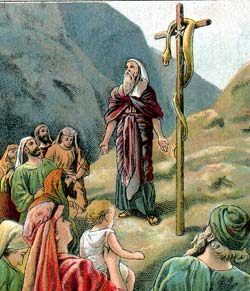Evidence Ignored
Regrettably, modern secular scholars often convey an erroneous impression of what can be known about the apostles’ travel, and about the arrival
of true Christianity in Europe’s western isles. Clement, the fourth bishop of the church in Rome, wrote in the late first century that the Apostle
Paul, "after preaching in the east and west… taught righteousness to the whole world, and came to the extreme limit of the west" (Epistle to the
Corinthians, chap. 5, in Ante-Nicene Fathers, vol. 9, p. 231).
Some think Clement’s phrase "the extreme limit of the west" refers to Rome, while others believe it refers to Spain or Britain. Yet any map of the
Roman Empire in the first century shows that the Britannic Isles—not Rome or Spain—represent the extremity of the west. Gildas, a sixth century
British monk, observed that "the island of Britain lies virtually at the end of the world, towards the west and north-west" (The Ruin of Britain, Bk.
3, chap. 1, Winterbottom, ed., p. 16).
Tertullian, bishop of Carthage in the second century, wrote: "The regions of Britain which have never been penetrated by the Romans [southwest
England, Wales and Scotland] have received the religion of Christ" (Def. Fidei, p. 179). Eusebius, bishop of Caesarea in the early 300s, records that
"the apostles passed beyond the ocean to the Isles called the British Isles" (Demonstratio Evangelica, Bk. 3, chap. 5). Eusebius had access to a
substantial library at Caesarea, which contained sources that have since been lost.
Theodoret, bishop of Cyprus in Syria (circa 430ad) states that "Paul, liberated from his first captivity at Rome, preached the Gospel to the Britons
and others in the West… and the Cymry [the Welsh]" (D. Civ. Gracae Off., Bk. 9). Around 300ad, Dorotheous, bishop of Tyre, stated that "Aristobulus,
whom Paul saluted [Romans 16:10] was bishop of Britain" and that Simon Zelotes also came to Britain (Synopsis de Apostol., Synops. 9, 23). Gildas says
that the coming of Christianity to Britain "happened first, as we know, in the last years of the emperor Tiberius [14–37ad]" (The Ruin of Britain, p.
18). This means that Christianity arrived in Britain no later than 37ad—less than a decade after Christ’s crucifixion. Gildas also recognizes the
Britons as God’s "latter-day Israel" (ibid., p. 28).
Scholars in previous centuries did accept these early reports as trustworthy accounts of history. James Ussher, Archbishop of Ireland and one of
the greatest scholars of the 17th century, presented considerable evidence that James, Simon Zelotes, Simon Peter, the Apostle Paul and others brought
Christianity to Europe’s western isles in the first century (The Whole Works of James Ussher, vol. 5, chap. 1, Erlington). Robert Parsons, an English
Jesuit and Oxford scholar, asserted in his 17th century work The Three Conversions of England that the apostles first brought Christianity to the
island, and that "the Christian religion began in Britain within fifty years of Christ’s Ascension" (p. 14). Modern scholars are ignoring the evidence
when they claim that the spread of Christianity to Europe’s western isles "left no narrative trace" and that it has been "lost beyond recovery."
|

 ...
... 

 Det har
jeg ikke sett tidligere, men det er vel en passende beskrivelse.
Det har
jeg ikke sett tidligere, men det er vel en passende beskrivelse.













 Nå ble jeg glad nå.
Nå ble jeg glad nå.